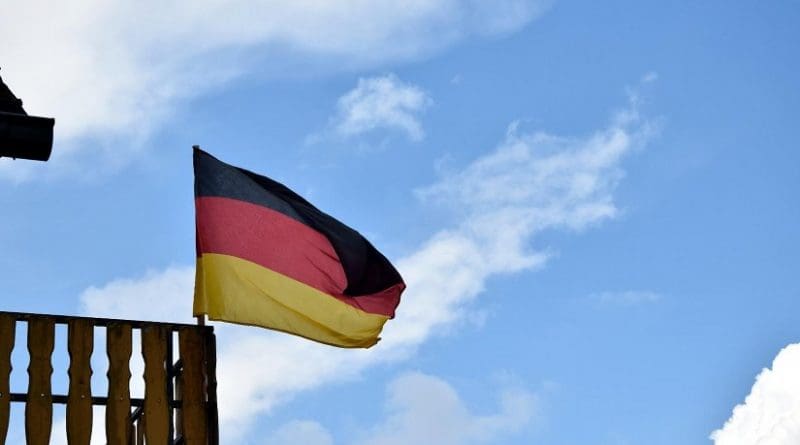No Winners In German Refugee Drama – OpEd
By Arab News
By Cornelia Meyer*
The scenes in Berlin and Munich over the weekend were reminiscent of Italy, with its series of chronic government crises. This time it was Germany, Europe’s largest economy and a traditional beacon of stability. The dispute about immigration threatened the 70-year-old coalition between the two conservative sister parties: The Christian Democratic Union and Bavaria’s Christian Social Union. This marriage of convenience had so far guaranteed both parties a seat at Germany’s power-broking table.
After the six-month marathon it took to build a coalition government following last year’s election, it has threatened to fall apart after just three months in office. Chancellor Angela Merkel has survived, but only just so and on the basis of a series of gigantic fudges in the EU as well as in Germany.
It all started in mid-June, when Interior Minister Horst Seehofer gave Merkel a two-week ultimatum to achieve an EU-wide solution to deal with the migration crisis, or he would start to turn refugees away at the border. Such a move would not only have violated EU law under the Schengen Agreement, but also the coalition agreement the CSU had signed up to just three months prior.
This unprecedented potential act of disobedience came against the backdrop of upcoming elections to the Bavarian Parliament, which will take place in October. The CSU had so far been able to rule the “Freistaat Bayern” (Free State of Bavaria) with a comfortable majority, which is now under threat. While refugee levels in Europe may well be down 90 percent since their peak in 2015, migration and refugees have become the key topic across Europe. The migration crisis has given rise to or emboldened many ultra-right-wing populists and is testing lofty European humanitarian values.
Germany is at the heart of this crisis. Among many, sentiments toward refugees have turned hostile since 2015, when the country let in one million people. This gave rise to the ultra-right-wing Alternative fuer Deutschland, which is nipping at the heels of the CDU/CSU. Last September, the CSU recorded its worst election result in post-war Germany. No wonder then that things are uncomfortable in Bavaria and also for Merkel and her Cabinet.
The chancellor took Seehofer’s threat seriously and held an inconclusive mini-summit in Brussels on June 24. The issue got kicked up to the full EU summit a week later. In the wee hours of last Friday morning, very tired, red-eyed leaders emerged with a compromise. They would create control centers in EU territory to work out how to distribute refugees. There should also be processing centers for immigrants outside the EU, namely in North Africa and Niger.
The EU leaders were happy in the feeling that they had saved Merkel and the integrity of the bloc. Yet this compromise was a gigantic fudge. There is no binding agreement for countries to take in refugees and the Dublin Regulation remains in force (it stipulates that any refugee is the responsibility of the country where they first enter the EU).
Pledging solidarity is one thing, and it may have got Italian Prime Minister Giuseppe Conte off his colleagues’ backs in the short term. However, if the leaders honestly thought they had achieved a true compromise, they are wrong: For one, EU solidarity will not be forthcoming. Countries to the east, namely Hungary, the Czech and Slovak Republics and Austria, will not accommodate any immigrants.
Their more liberal friends to the north and west may not oblige either. They too have far-right, anti-immigration opposition parties to contend with. The North African states, especially Egypt, have also made it quite clear that they are not willing to host “processing centers.”
Back to the German drama, where Seehofer was not satisfied with the compromise achieved in Brussels and threatened to resign if Merkel could not come up with better solutions. A series of crisis meetings took place over the weekend: Between the chancellor and the interior minister; CDU conferences in Bonn; CSU meetings in Munich; CDU/CSU get-togethers; a meeting among German Parliament President Wolfgang Schauble, Seehofer and Merkel; and of course coalition meetings.
Seehofer was alternately resigning and withdrawing his resignation. The libretto of a Wagner opera reads far less dramatic than what took place in Germany over the weekend. However, unlike in a traditional Wagner opera, we have no bodies so far — instead, we have a compromise, which in turn is also a gigantic fudge. The government will install transit centers for refugees on the borders with Austria. The Social Democratic Party, the junior coalition partner, was not consulted and its leader, Andrea Nahles, was not amused.
While the transit centers may work as a CDU/CSU compromise, Italy’s right-wing Interior Minister Matteo Salvini will not take back any refugees who entered Italy first. Seehofer and Merkel may also find it tough to convince other EU countries to take on refugees. Austrian Chancellor Sebastian Kurz has already criticized the transit centers and threatened to increase controls at Austrian borders. Austria, by the way, holds the EU presidency for the remainder of the year, which will make matters more interesting.
In the end, there are absolutely no winners in the Seehofer drama. Merkel is weakened, which will not help her position within the EU or with US President Donald Trump and his bellicose anti-trade rhetoric and NATO skepticism. Seehofer looks shifty and weak and will probably have to go after the Bavarian election. The EU was steered to the abyss and could not find a realistic or lasting compromise.
The refugee problem could well be the undoing of the EU. There are also economic woes on the southern rim and there is, of course, Brexit making life difficult. The Seehofer ultimatum was, in the end, “Much Ado About Nothing” — only the ultimate outcome may not be as benign as in Shakespeare’s comedy.
*Cornelia Meyer is a business consultant, macroeconomist and energy expert.

